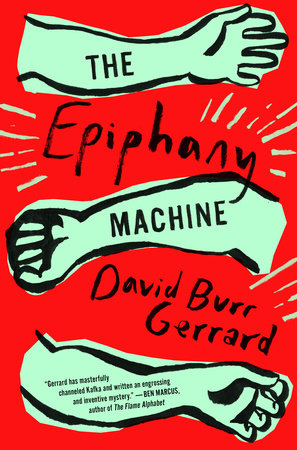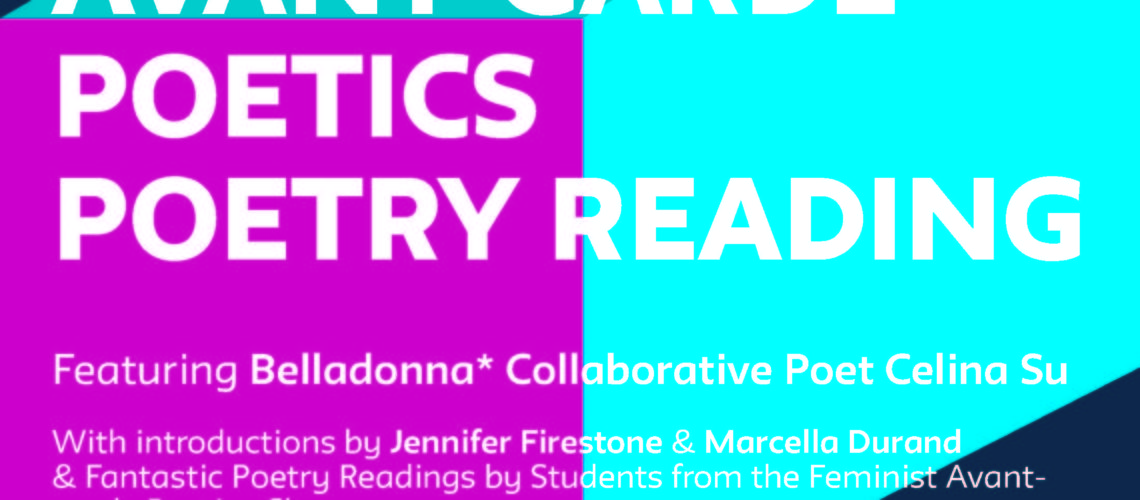
Panel 1 on 09/25/17 Edith Grossman The special pleasure for me when I translate wonderfully written works like the novels of Gabriel García Márquez... Read More

Are you Writing Major intending to graduate in Fall 2018? Join us for the Literary Studies Department’s, Writing Capstone Meeting on February 6th from 4-5pm! ... Read More

Are you a Literature major intending to graduate in Fall 2018? Join us for the Literary Studies Department’s, Literature Capstone Meeting on January 30th from 4-5pm!

The Epiphany Machine, published by faculty member David Gerrard, has been named one of the year’s 5 best Sci-Fi books by The Washington Post! The... Read More

Join us for Feminist Avant-garde Poetics Poetry Reading on November 28th from 4-5:30pm at Wollman Hall! With introductions by Jennifer Firestone & Marcella Durand,... Read More

John (Colin) Marston, Class of 2017 I’m attending a six-week Jewish Studies program through the Leo Baeck Institute at Humboldt University in Berlin. I’ll... Read More

Assistant professor of literary studies Jennifer Firestone published Gates and Fields earlier this year. Read a compelling interview with her about it here.

Faculty member David Gerrard has published The Epiphany Machine, a book that has been called “hilarious” and “razor-sharp” by The Washington Post, a “wildly charming, morally... Read More
Faculty member David Gerrard has published The Epiphany Machine, a book that has been called “hilarious” and “razor-sharp” by The Washington Post, a “wildly charming, morally serious bildungsroman with the rare potential to change the way readers think” by Publishers Weekly, and “one of the year’s finest books” by Largehearted Boy.
Purchase the book here.
Panel 1 on 09/25/17
Edith Grossman
The special pleasure for me when I translate wonderfully written works like the novels of Gabriel García Márquez is that his brilliant prose filled with great swells of lyricism and poetic imagery challenges me to find a comparable flow in English. My abilities as a writer in my own language are stretched to their limit in their struggle to recreate the sound and the sense of his castellano castizo—pure traditional Spanish. He is a very experimental writer in many ways he writes in absolutely classical Spanish, classical in Spanish means 17th century.
This is I think a specific problem in translating the writing of García Márquez. At least linguistically, I believe he is more traditionalist than modernist. By this I mean, he is an hijo legítimo—a legitimate child –of Cervantes. And that his prose resonates with this inheritance, despite the countless regionalisms that flow in his writings, and his very deep sense of specific and local maladies: historical, geographical and cultural.
Carmen Boullosa
The first time I read One Hundred Years of Solitude was 1970. A teacher at school brought the book for us to read. And we loved it so much that we decided we wanted to do something different, not the mandatory essay. So we shot a super 8 film. . . That film caused the parent’s association at school an immense irritation. . . . They forced the nuns—it was a school for girls run by Ursuline nuns—to take the novel out of the curriculum. It could not be taught to decent girls as we were. . .
The little super 8 movie we made started with the shooting squad. There was no Aureliano Buendía in it. There were no Buendías at all. There was absolutely no Macondo there. We, the six authors of the film, were standing in front of a firing squad, a bright wall behind us, and then we started to run in our elegant neighborhood of Las Lomas de Chapultepec, in Mexico City. We were all dressed in very short mini skirts . . . .
The teacher had chosen the book because of its literary prestige.. . . She saw in the novel what the novel has of traditional and its literary beauty. For us the novel meant another thing. . .
Siddhartha Deb
Is there nevertheless a difference between being caught in a battle with your own elites and in one where they serve foreign capital? Imperialism will tell you no, capitalism will tell you no, even liberalism and neoliberalism and liberal arts will tell you no. But this novel says yes, it shows us yes, it traces for us yes as it depicts how, as the working conditions lead to unionization and the unionization leads to demands, the demands in turn lead to “the hermeneutical delirium” (301) produced by the company lawyers who claim anything and everything, including that the banana company “did not have, never had had, and never would have any workers in its service because they were all hired on a temporary and occasional basis” (302). Does this sound like magic realism to you? If so, you’ve been living very sheltered lives.
Panel 2 on 10/19/17
Juan E De Castro
“Gabo’s Canon”
By looking at Gabo’s canon one finds that the novels and stories of Faulkner, Joyce, and Kafka, among others, showed him what literature could and should be; that the bolero taught him that poetry could be popular without losing beauty or value; that the vallenato, and with it, oral storytelling, provided an example of a narrative rooted in personal and local lives and histories, and together with film, that literature should be accessible to all. It was of course his genius that helped him transform these diverse influences into One Hundred Years of Solitude.
Mariano Siskind
“Globalization and Apocalypsis, or in What Sense One Hundred Years of Solitude Was (and Continues to be) a Global Novel
I would like to suggest a dystopian interpretation . . . with the potential to re-inscribe Gabriel García Márquez’s novel as a global novel about the end of the world today, that speaks to our own experience of the end of the world, today, in Donald Trump’s world of ecological catastrophe’s, refugee crises and the death of liberal democracy. . . . Zizek famously wrote that it is easier for contemporary Western culture to imagine the end of the world than it is to imagine the end of capitalism. Read today, in the middle of our own perfect storm of ends of the world, I think the final pages of Gabriel García Márquez’s novel can be read as one of Zizek’s dystopian novels that announce the end of something that may be too magical and too alternatively modern to be identified with the logic of capital, but . . . it is not at all entirely strange with its history. . . after the destruction of Macondo and the Buendías, there’s no room in our own context of reception to read in that apocalyptic wind the inauguration of a post-capitalist, self-reconciled world. All I can read in those final sentences is perhaps too literal but nevertheless insightful: there is no hereafter, the end is the end, and the end of the world is nothing but the end of the world, no “second opportunity on earth”; and nothing more akin to our experience of end of times today, than Aureliano Babilonia reading about his own demise as it takes place in real time. Just like us reading today’s paper
Elaine Savory
Kamau Brathwaite, (henceforward referred to here as he prefers, by his African name, Kamau), the world-famous Barbadian poet, has published a two volume work on magical realism, titled MR. This began life as a graduate course reader and included close reference to One Hundred Years of Solitude. It is clear thart García Márquez clearly has contributed to Kamau’s thinking about magical realism as a fictional or literary, primarily poetic mode. One of his many powerful poetic mappings of the world is through iconic symbols for major world cultures: for Europe he chooses the missile, representing that part of European thinking which has driven domination of the world and damage to both people and the earth itself. Such thinking does not allow for contradiction, or the embrace of “magic”, or apparent irrationality. One Hundred Years of Solitude demonstrates a complicated and multidirectional vision of experience and of place, and so is important to read in relation to Kamau’s own unique way of thinking and imagining his Caribbean, the world in general, and even the cosmos.